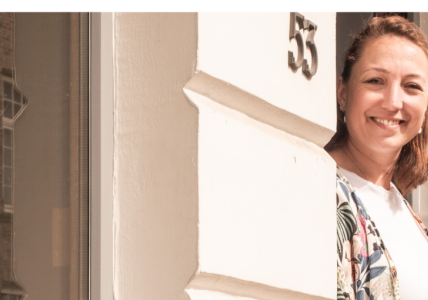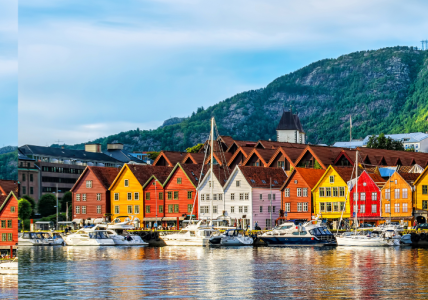Citizen dialogue is key to good water governance, yet it often fails. Meet Susanne Mortensen, who works with landowners to protect water quality in the Interreg WaterCoG project.
“My interest in citizen dialogue is based on 20 years of work within water management,” says Susanne Mortensen. “I became increasingly aware of the barriers caused by communication gaps.”
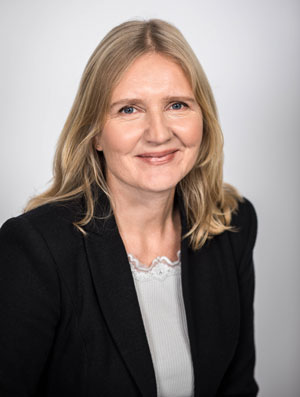
Susanne works at Aalborg Municipality, partner in the Water Co-Governance (WaterCoG) project. The project combines top-down approaches with bottom-up, participatory solutions for sustainable management of water ecosystems in the North Sea Region.
Mortensen’s commitment to water management and stakeholder dialogue recently earned her a nomination as a “local EU hero” in the campaign #EUprotects. The campaign spotlights Europeans who help safeguard our environment and quality of life.
Water: A wicked problem
EU water policy is designed to safeguard vital ecosystem services such as the protection of fish stocks, drinking water, biodiversity, and carbon sequestration. A recent report from the European Commission stresses the rising importance of water policy in mitigating climate change.
However, implementing water regulations is far from simple. According to Dutch scientists, water governance is often seen as a ‘wicked problem’ because it is extremely complex and fraught with conflict. Stakeholder inclusion in water management is widely recognised as crucial but attempts to engage citizens often fail. The WaterCoG partners have set out to overcome this challenge and leverage stakeholder participation in water governance to implement EU legislation such as the Water Framework Directive, the Floods Directive, and the Drinking Water Directive. Across 16 pilots, they are trialing different approaches and gauging their effectiveness.
The art of improving relations
Susanne Mortensen’s role is to engage with landowners in north-western Denmark to restore wetlands and their ecosystem services, such as keeping nutrients and pollutants away from open water bodies.
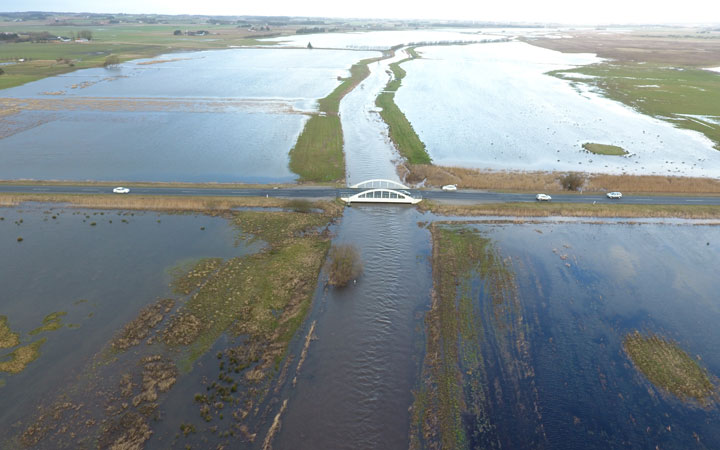
Susanne Mortensen facilitates farmers to swap wet or flood-prone areas for productive farmland. Once restored, these wet areas help prevent pollution from entering water ecosystems.
“Our trump card is a public scheme designed for win-win solutions,” she explains. Under this scheme, the state buys low-lying areas from farmers, who in turn get the chance to buy productive land closer to their farms. The municipality coordinates the land redistribution process, which makes the deal quite attractive for farmers. However, a lack of trust often remains a barrier for them to engage.
“Many landowners have little confidence in public authorities, based on their perceptions or past experience where they may have felt unheard. To create a trustful dialogue, we visit the farmers and discuss with them face to face,” says Mortensen.
When the meeting starts, her focus is on listening: “In my experience, it is essential that the farmer gets to tell their story first. Listening attentively and being open to their views is important. At the heart of the matter, this is about mutual respect.”
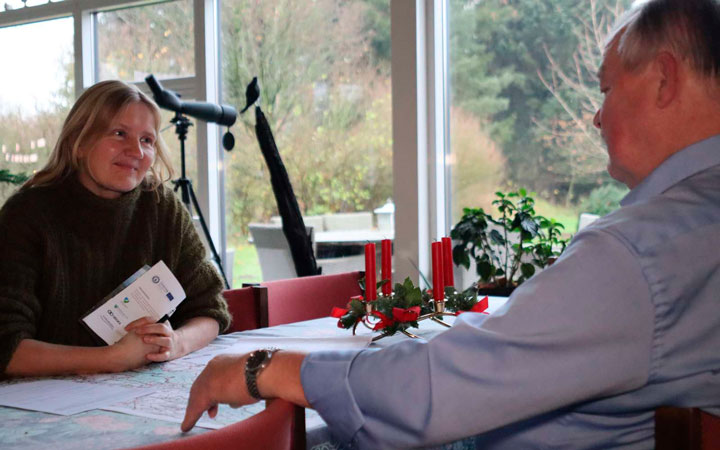
Visiting landowners in their own home is essential to foster the best dialogue.
The municipality also teams up with local agricultural associations on farm visits to offer free advice on how farmers can support the natural environment. The associations have strong relations with the local farmers, which helps create confidence in the conversation.
As a result of successful talks, several farms are now set to join the wetland restoration scheme. These first movers are expected to become local role models by demonstrating the benefits involved. The EU Interreg funding plays a major role in enabling the farm visits. “It is crucial that the meetings take place on the farmers’ home turf. It’s by far the best setting for these conversations,” notes Susanne Mortensen.
Cooperation an eye-opener
The Limfjord area hosts two of the 16 WaterCoG pilots. Each pilot uses different participatory approaches to deal with local issues, such as crowd-monitoring of water salinity, citizen science relays, and local community involvement in natural flood management.
WaterCoG project manager Barry Bendall says: “Across the North Sea Region, we share a need to find more effective ways of joining up high level policy ambition with the actions of businesses and civil society – particularly at the local level. Within the WaterCoG pilots we are exploring how alternative governance arrangements can enable greater join up of ‘top down’ and ‘bottom up’ ambition to deliver more effective and sustainable management of our ecosystems.”
“It is really interesting to experience first-hand that there can be very different solutions to similar problems,” comments Susanne Mortensen. “This has challenged my world view in some cases. For instance, I have come to realise that water governance in Denmark is rather top-down compared to some other countries.” In her view, cooperation across borders is vital:
“We need European cooperation to keep pace with the challenges of water management. Working in a transnational partnership enables us to get into gear and do more, faster and better.”
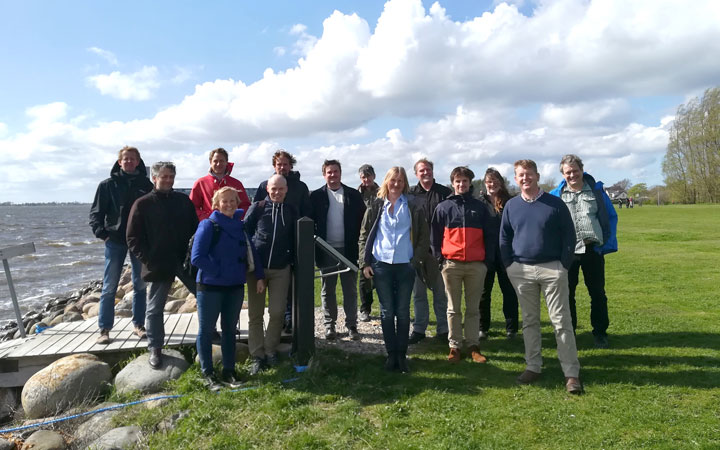
The WaterCoG partnership visiting the Limfjord.
ABOUT SUSANNE MORTENSEN
Susanne works at the Secretariat of the Limfjord Council, a cooperation between 18 Danish municipalities to ensure good water quality in the Limfjord. She has 20 years of experience with water management including environmental impact assessments, wastewater, and agriculture and holds a master’s degree in conflict resolution and negotiation. So far, she has engaged with more than 300 farmers in the Limfjord area.
Susanne’s top tips for engaging with landowners:
1. Be mindful of their time and respectful of their views.
2. Contribute your expertise – and be honest about your knowledge gaps.
3. Avoid the mistake of seeing landowners as a uniform group with identical views. Great differences naturally exist between people who happen to be farmers.
ABOUT WATERCOG
The WaterCoG project promotes the adoption of new participatory, ecosystem service-based approaches to integrate water management frameworks whilst providing additional social, economic and environmental benefits. The project involves nine partner organisations based in Sweden, Germany, Denmark, Netherlands and the UK. Learn more about WaterCoG
